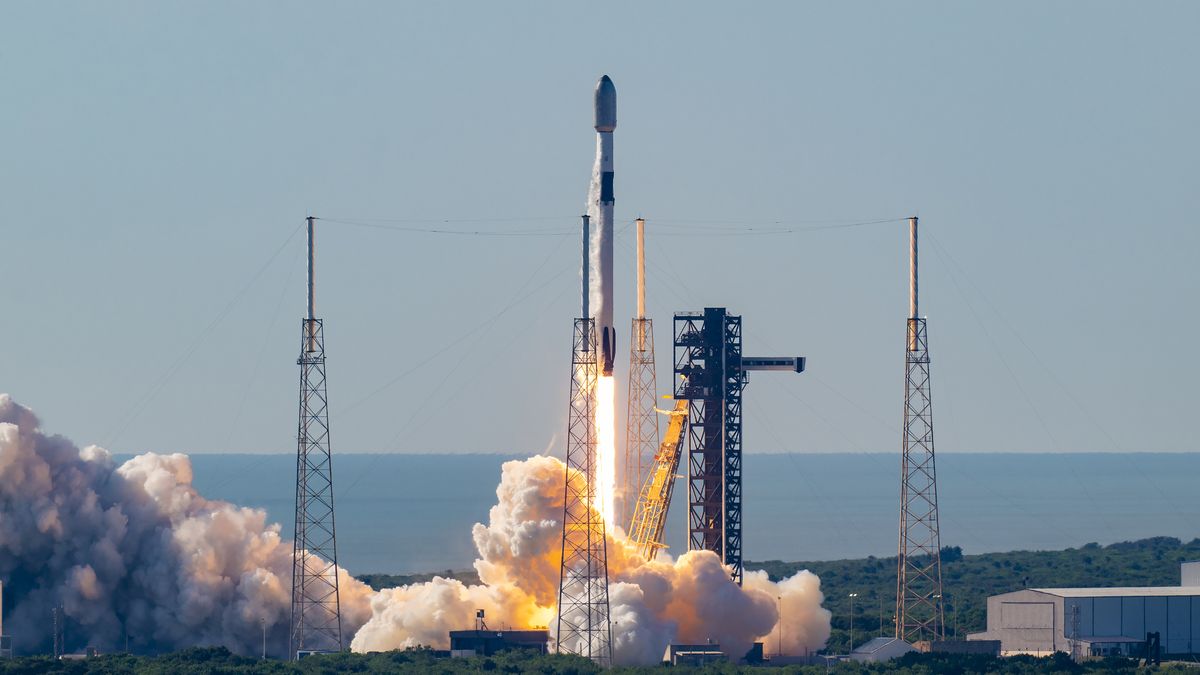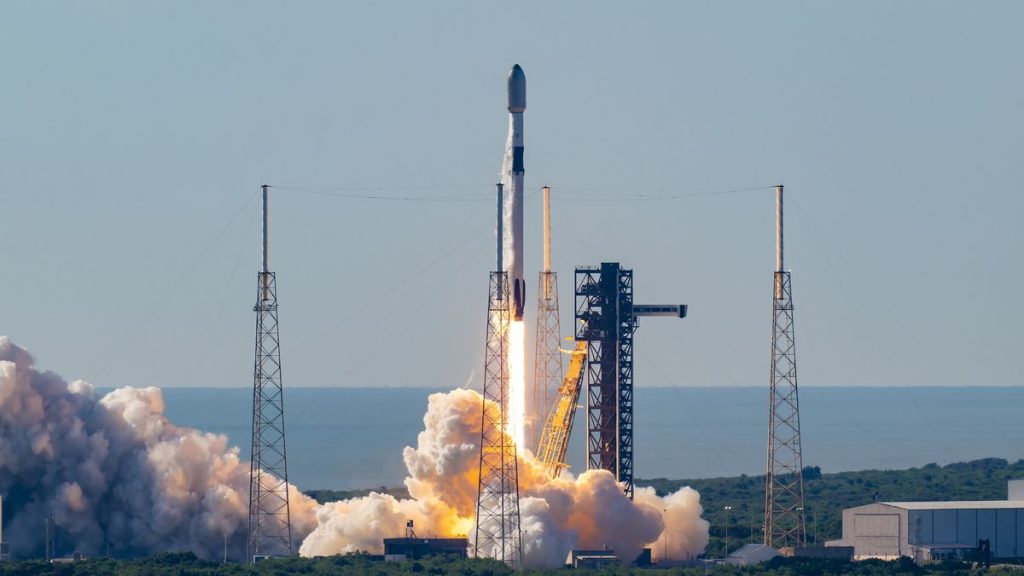SpaceX is set to tie its rocket-reuse record today (Nov. 11).
A Falcon 9 rocket is scheduled to launch the KoreaSat-6A telecom satellite from NASA’s Kennedy Space Center (KSC) in Florida today, during a four-hour window that opens at 12:07 p.m. EST (1607 GMT). It will be the 23rd mission for this rocket’s first stage, according to SpaceX, equaling a mark set by two other Falcon 9 boosters.
SpaceX will webcast the launch live via X, beginning about 15 minutes before liftoff.
If all goes according to plan, the booster will return to Earth for a 23rd time today, touching down at Cape Canaveral Space Force Station, which is next door to KSC, about eight minutes after liftoff.
Related: SpaceX launches 40 OneWeb internet satellites to orbit, lands rocket
The Falcon 9’s upper stage, meanwhile, will continue hauling KoreaSat-6A to geosynchronous transfer orbit, deploying it there about 34.5 minutes after launch.
The 3.9-ton (3.5 metric tons) KoreaSat-6A will then make its way to geostationary orbit, which lies 22,236 miles (35,786 kilometers) above Earth. At this altitude, orbital speed matches our planet’s speed of rotation, allowing spacecraft to “hover” over the same patch of ground. For this reason, geostationary orbit is a popular destination for spy and weather satellites, as well as communication craft such as KoreaSat-6A.
“KoreaSat-6A will replace the current KoreaSat-6 satellite and will deliver both fixed satellite service (FSS) and broadcasting satellite service (BSS) to South Korea,” Thales Alenia Space, the French company that built the new satellite, said in a statement last year.
“Built on Thales Alenia Space’s proven Spacebus 4000B2 platform, KoreaSat-6A will be fitted with six BSS transponders and twenty FSS transponders to cover all of South Korea,” the company added.
KoreaSat-6A will be operated by the South Korean company KT SAT Corporation Ltd. The satellite’s expected lifetime is 15 years.
Rapid and repeated rocket reuse is a key priority for SpaceX, as today’s mission shows.
The company plans to ramp up the reuse even more in the future: Its next-generation megarocket, Starship, is designed to be fully reusable, with both of its stages coming back to land atop the launch mount. SpaceX’s two currently operational rockets, the Falcon 9 and Falcon Heavy, feature expendable upper stages.




